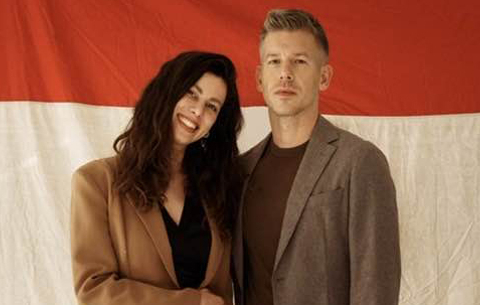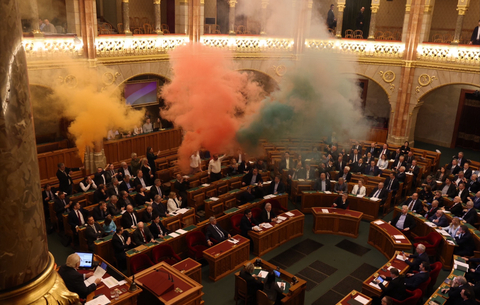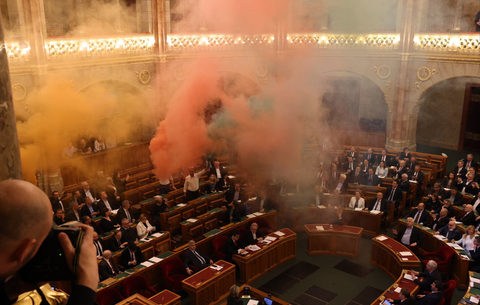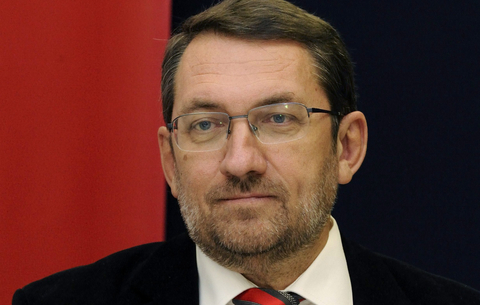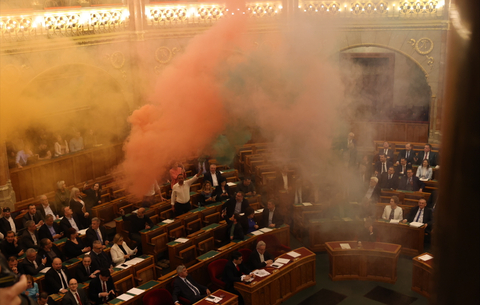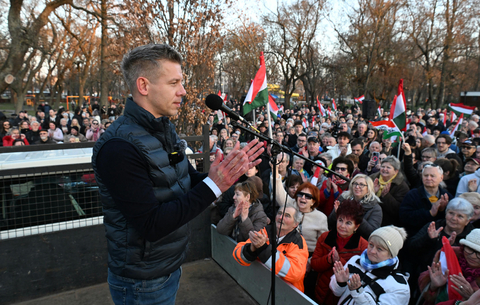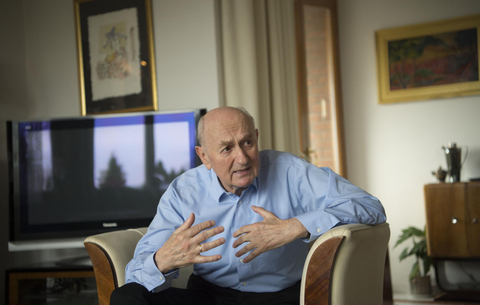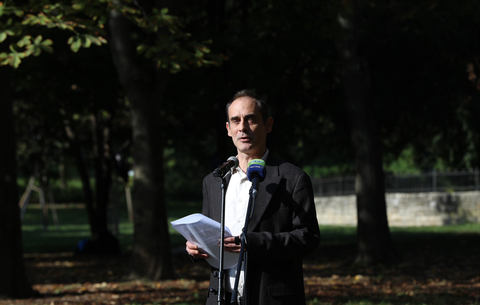They love me not?
Andras Lovasi, Marton Brady, Balazs Denes, Andras Schiffer and Pal Szombathy left the Szeretem Magyarorszagot Klub (I Love Hungary Club) on 20 December. The five public figures have decided the organisation is not carrying out the task for which it was created. In future, the five will not be attaching their signatures to the "veiled government propaganda" that they say the organisation is producing. Karoly Gerendai has said he regrets their departure.
There was no shortage of events during 2006 to which the Club could offer its instant reaction by way of a press release. But several members did not agree with statements it made during the autumn riots. Dissenters felt that Ferenc Gyurcsany's Balatonoszod speech was beyond the pale, and that it was time to step off the "better Gyurcsany than Orban" treadmill.
The Club's official view of the autumn events was the following: "All moral people and all democrats must condemn vandalism, barbarism and the burning of cars and buildings. We believe that responsible, adult people live in this country who can confront difficulties and make sacrifices if they know that their sacrifices are not in vain and that they might give birth to a more honest, more effective country.... In such a country, everyone is responsible for his own lies, because in that country there would be none of those white, overlooked lies that poison day-to-day life. In that country, politicians who deliberately lied would resign in full awareness of their responsibilities."
The lawyer Andras Schiffer, an official of the Hungarian Civil Liberties Union, and Pal Szombathy, the former editor-in-chief of the daily Magyar Hirlap, were unable to to support this declaration. Schiffer said: "The prime minister's incomparably cynical behaviour can be excused neither because of past sins nor because of the similar behaviour of his rivals. If a responsible leader, whether prime minister or leader of the opposition, is unable to accept the consequences of his words and deeds, then he is unsuited to holding office. Szeretem Magyarorszagot was not created to lend its weight to a morally unacceptable whitewashing."
Szombathy said it was untrue that "everyone has lied for the past 15 years." He added: "Using this as an excuse to support Gyurcsany is naive, or more precisely, it is the result of antipathy to Viktor Orban. We have to escape this treadmill where everyone says Gyurcsany is still the lesser evil, because otherwise Orban will come back. We are forgetting that we are helping to build up these two men's already ample egos. There is politics without them. We should not let their duel obscure our own sense of moral judgement and our analytical abilities," Szombathy argued at the time.
The Club sprang into action once again following the riots of 23 October. They asked people to write to them saying that they wanted to live in a Hungary that was being built, rather than one dominated by violence. They intended this to demonstrate that there existed a peaceful majority in the country.
"If you are not a demonstrator, then send a postcard," ran the advert that appeared in several Hungarian newspapers. After the autumn demonstrations, the Club launched a national movement against street violence in the interest of peace and harmony. But this action was very one-sided, the five refuseniks say, and it was in part this that lead to their departure. The message was one of support for the prime minister and praise for the police, they say. For them, it was a case of well-packaged government propaganda, and not of a call for unity.
Karoly Gerendai, a member of the Club's operating committee, told hvg.hu that the five's departure was sad, since holding a different opinion was not something that needed to exclude anyone from the Club.
"We do not really understand why they accuse us of echoing the government line. Since 23 October we have condemned both police and civilian violence. The postcards were a friendly way of promoting unity," Gerendai said, who asked the five to rethink their decision in his letter replying to them.
The Club's spokesperson said their departure would not weaken the Club. There were several new members, including the actor Janos Kulka, whose arrival strengthened the organisation, the spokesperson said.

